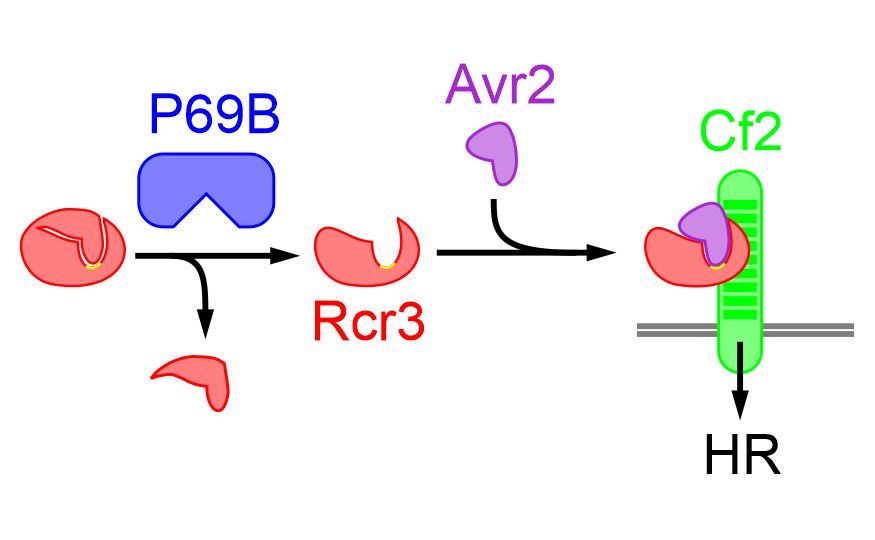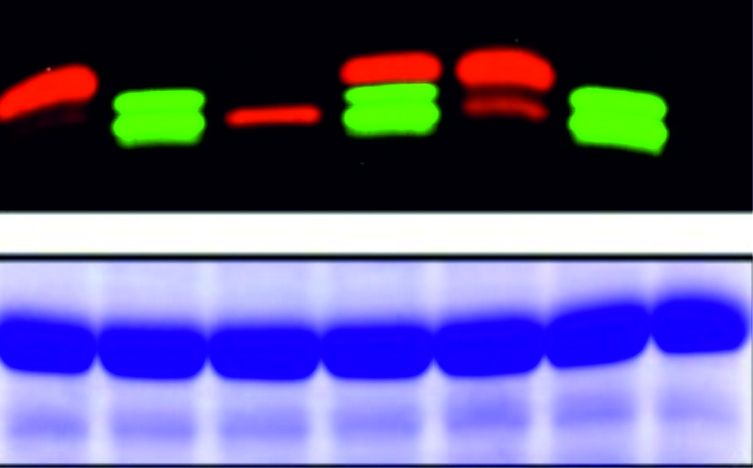News
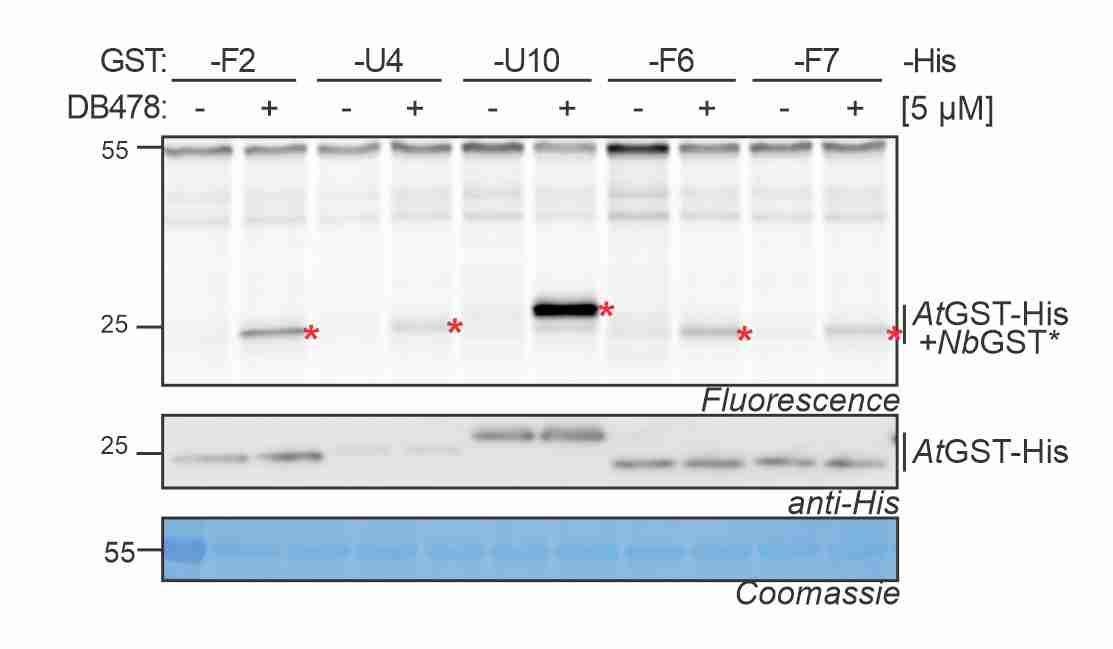
October 2023
GST photoaffinity labeling! Maria validated a photoaffinity probe for GSTs and studied the GST response to agrochemicals and disease. More here!
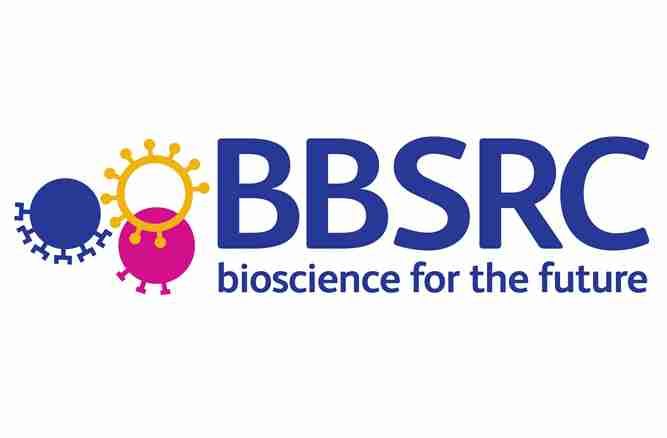
October 2023
NEW BBSRC grant! The BBSRC funds us to continue the validation of novel AI-predicted P68B inhibitors!
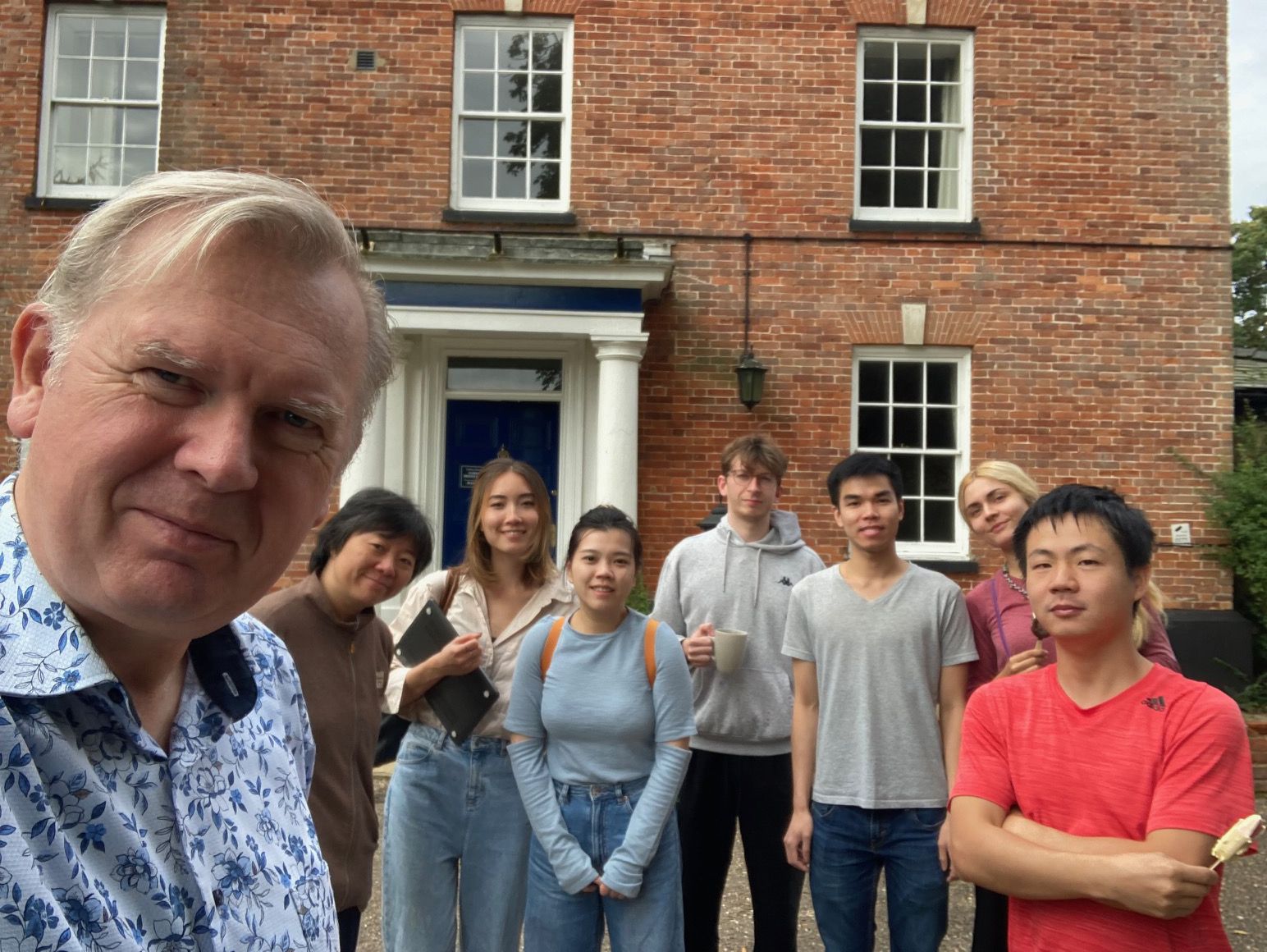
September 2023
Labretreat to Swaffham, Norfolk. We had excellent brainstorms and have seen lots of seals during the hike!
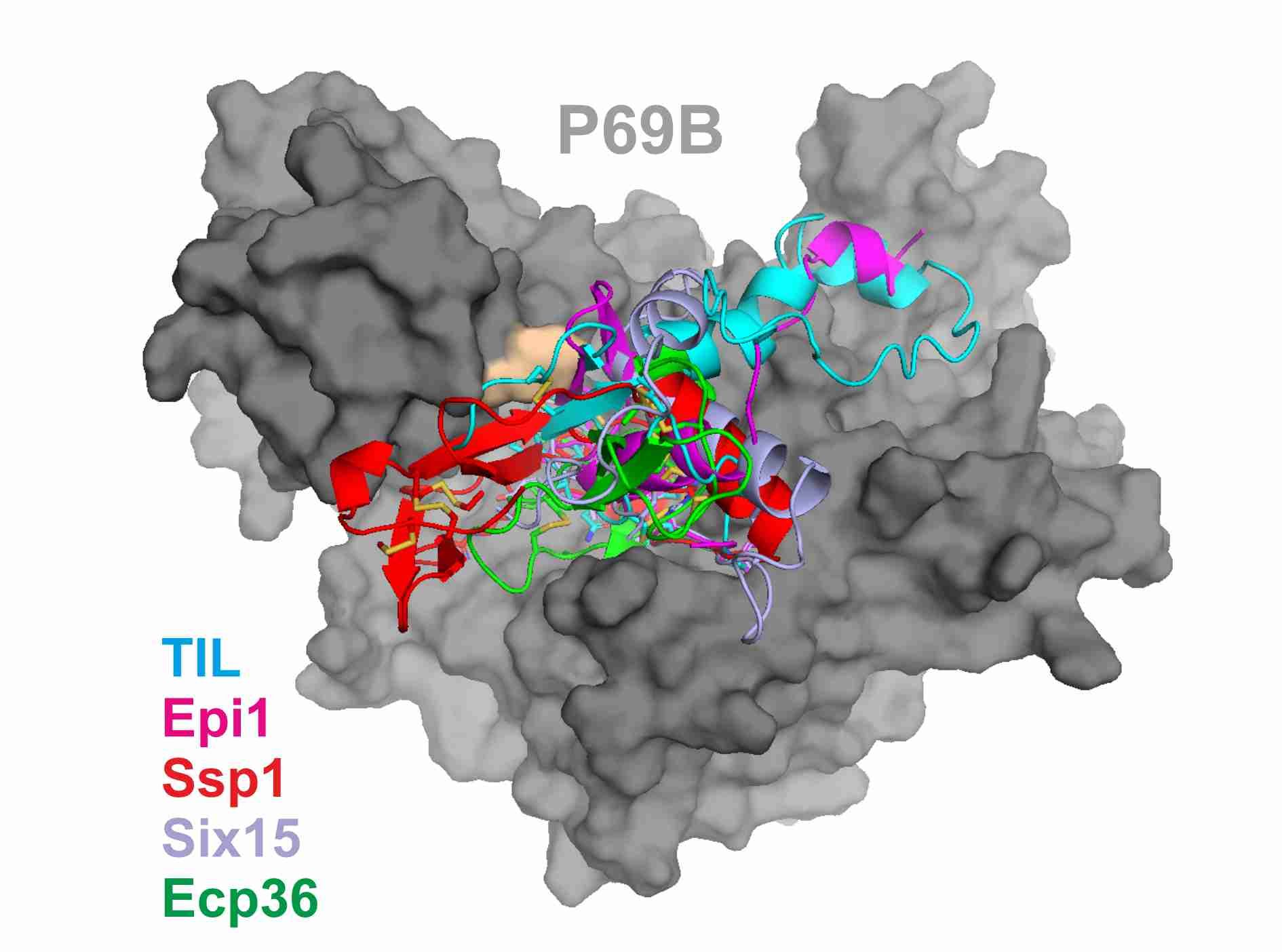
September 2023
AlphaFold Multimer predicts cross-kingdom interactions at the plant-pathogen interface. Excellent teamwork by Felix and Jie!
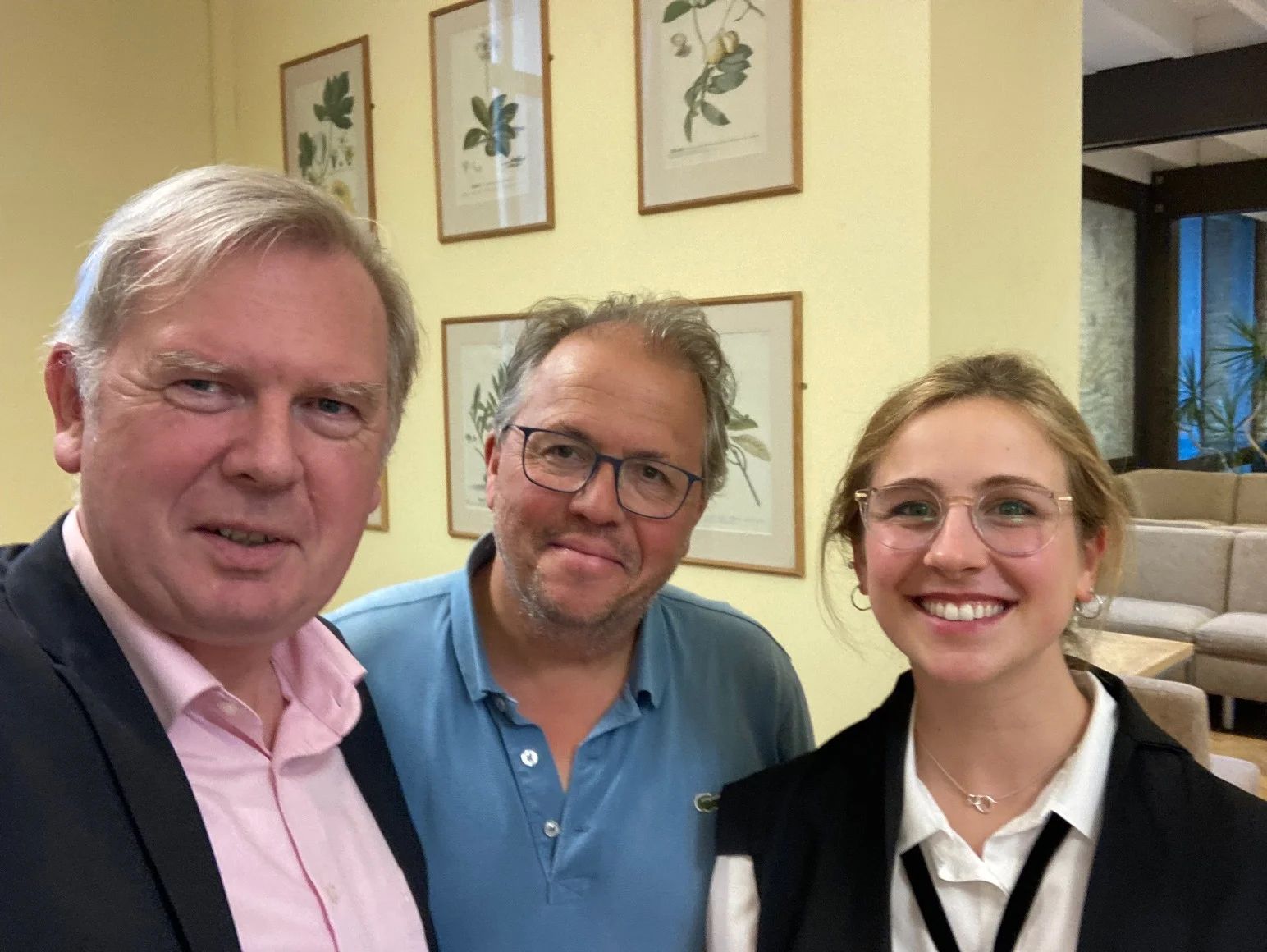
September 2023
Dr. Issy! Issy submitted her thesis and passed her viva with only minor corrections. Matthieu Joosten was one of the examiners. Congrats, Issy!
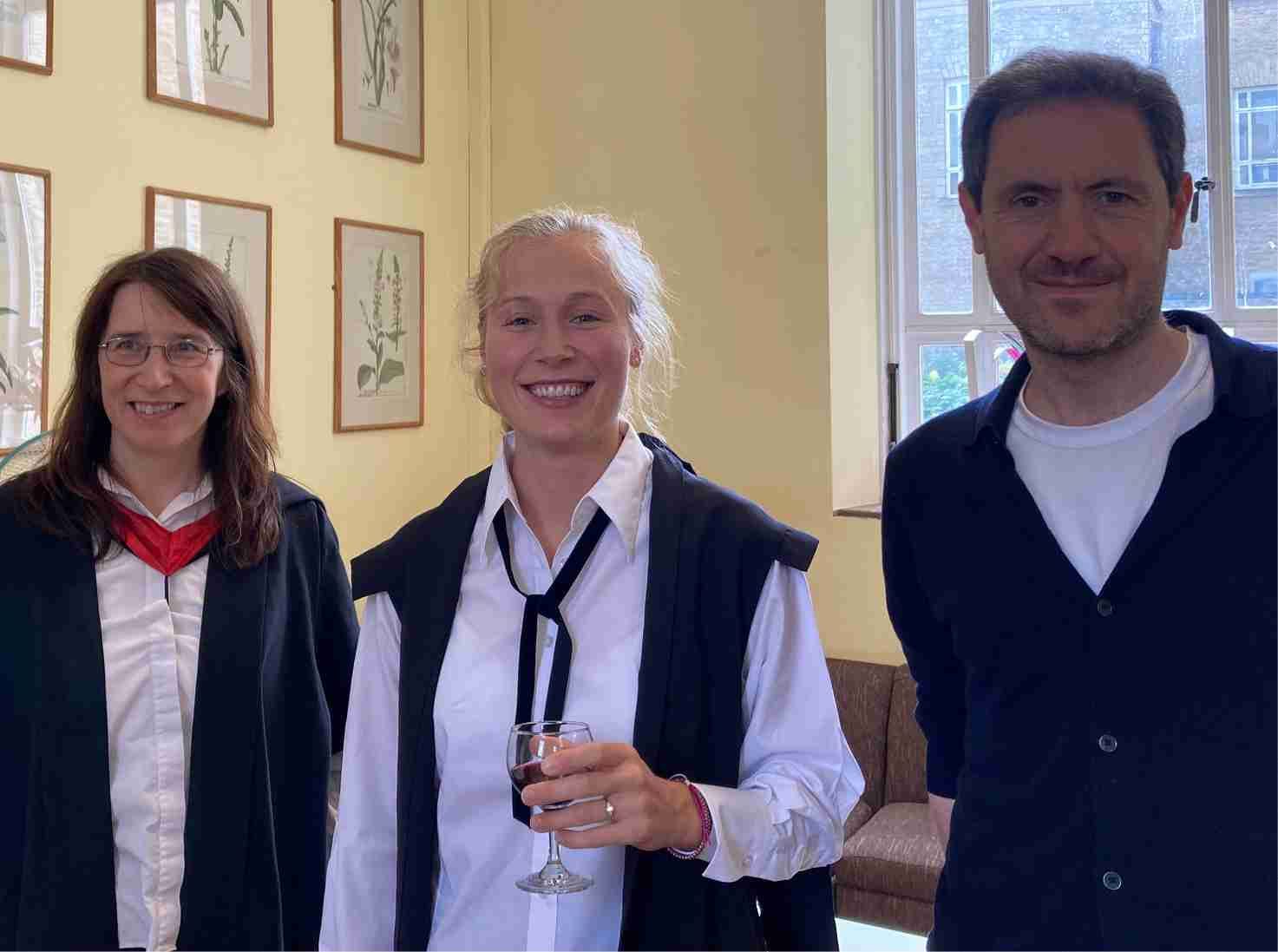
August 2023
Dr. Alice! Alice submitted her DPhil thesis and passed her viva with only minor corrections. Gail Preston and Tolga Buzkurt were her examiners. Well done Alice!!!

June 2023
Bye Shijian! Only with us for 12 months, Shijian has been very productive on the molecular pharming project and returned to China to start a company!
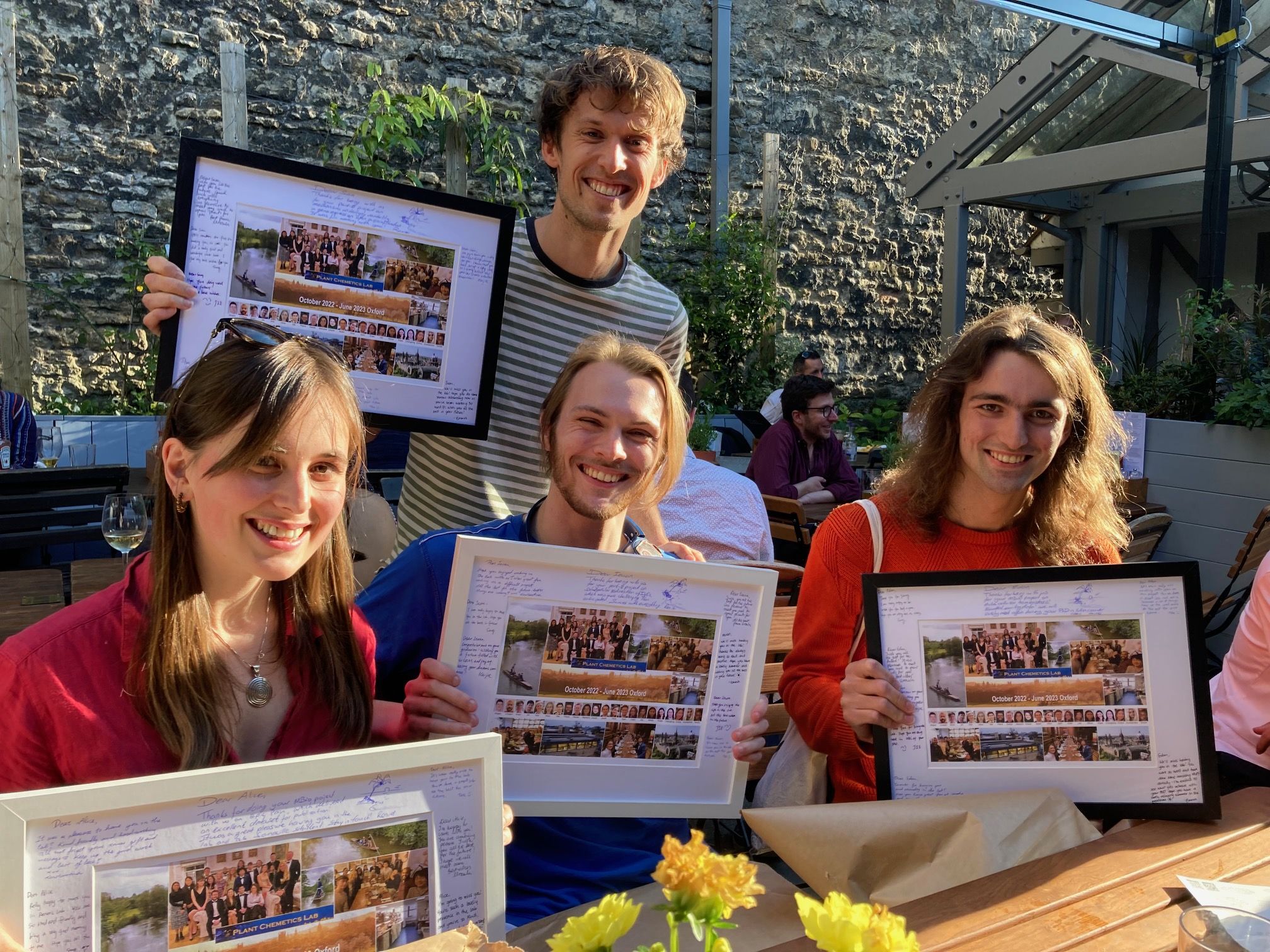
June 2023
Bye Y4 students! Sam, Ieuan, Alice and Edan were with use to do their Y4 projects with Shijian, Konstantina, Jie and Tee, respectively. They had a great time and made very interesting discoveries!
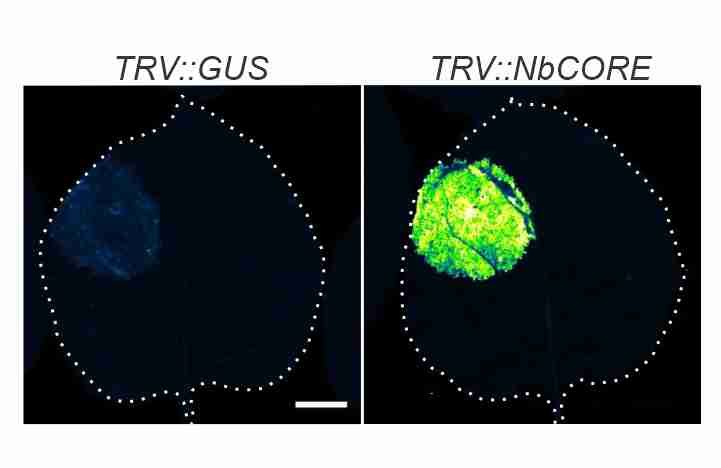
May 2023
Issy's CORE paper! Depletion of CORE, the receptor of the cold shock protein of Agrobacterium results in increased transient protein expression!
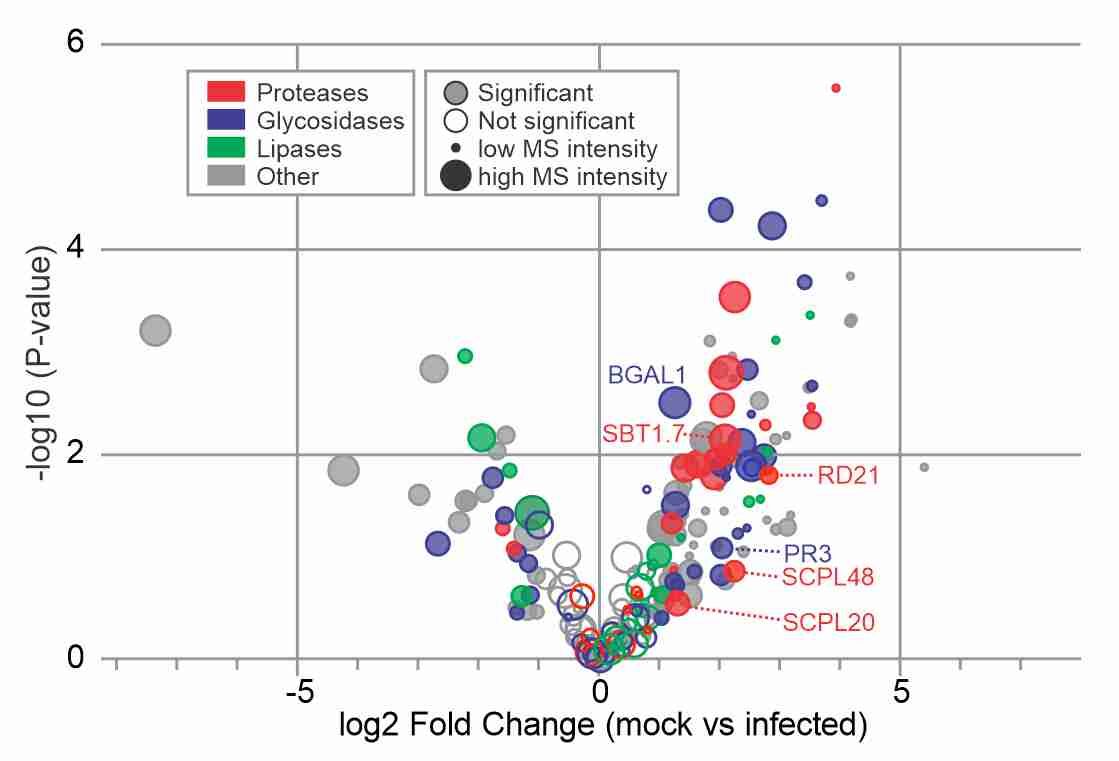
March 2023
Suppressed hydrolases! Daniela and Alice published their manuscript in New Phytologist reporting dozends of secreted hydrolases that are suppressed during infection, and showing that one of them, PR3, is a neo-functionalized hydrolase that contributes to immunity.
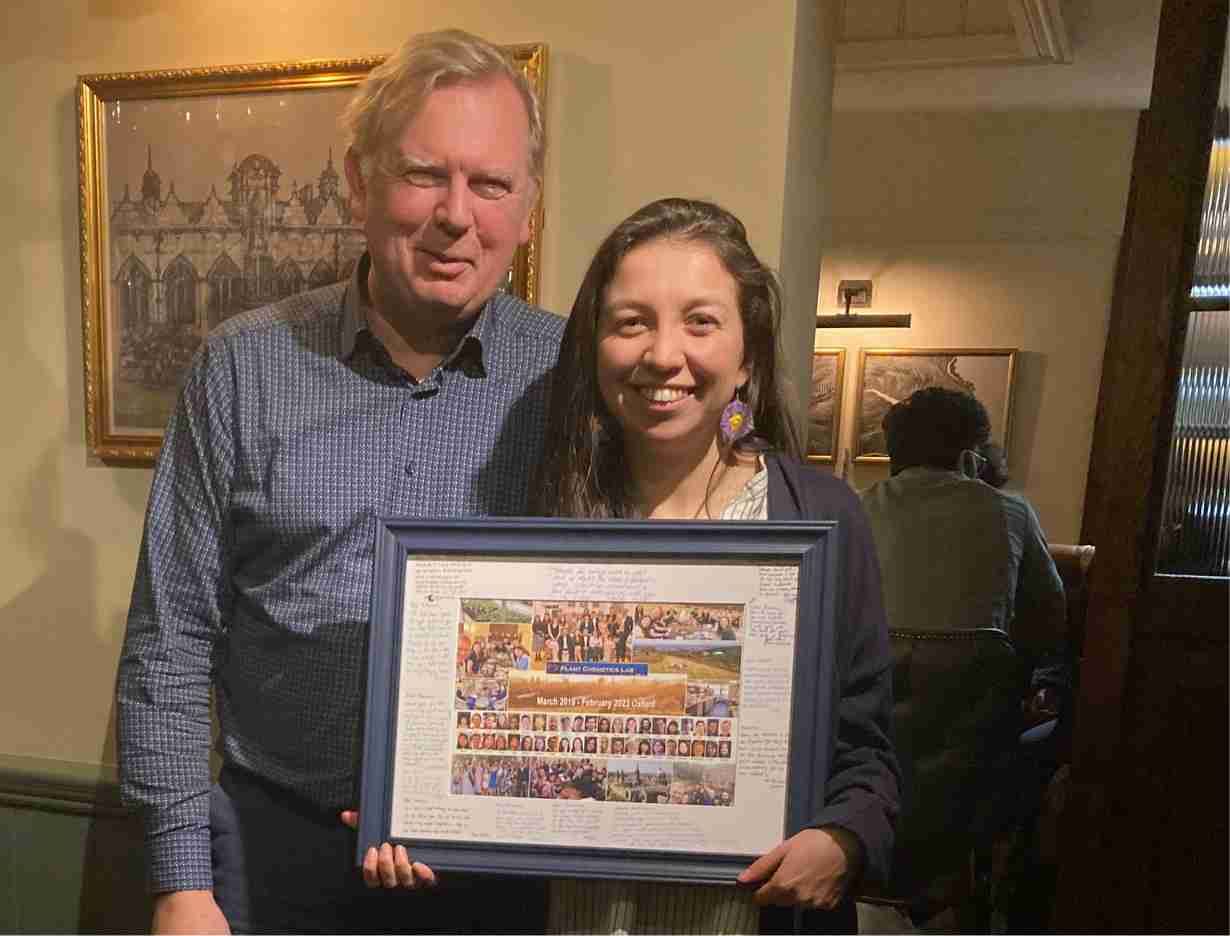
February 2023
Bye Mariana! It has been very productive and fun having you with us for 4 years! Success starting your own laboratory at IPB in Halle!!!
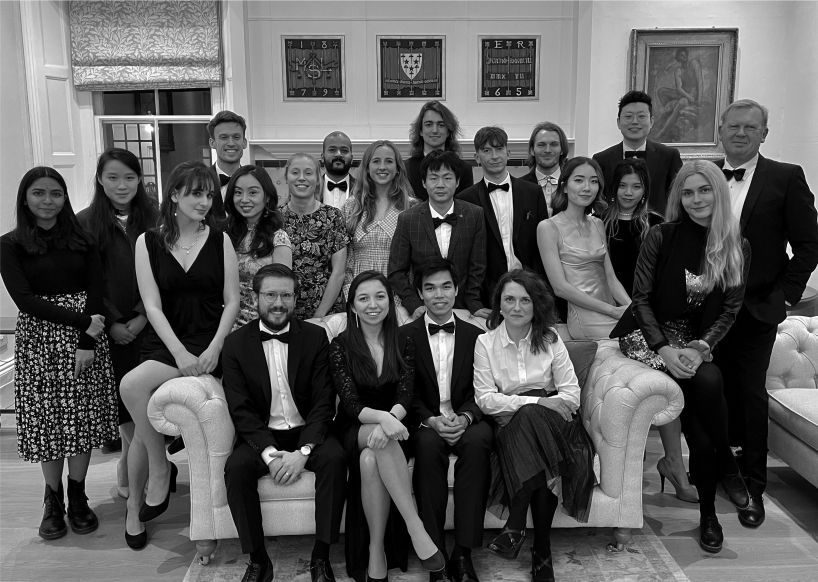
January 2023
Happy 2023! New year dinner at Somerville College. Looking back at a good 2022 and forward to an exciting 2023!
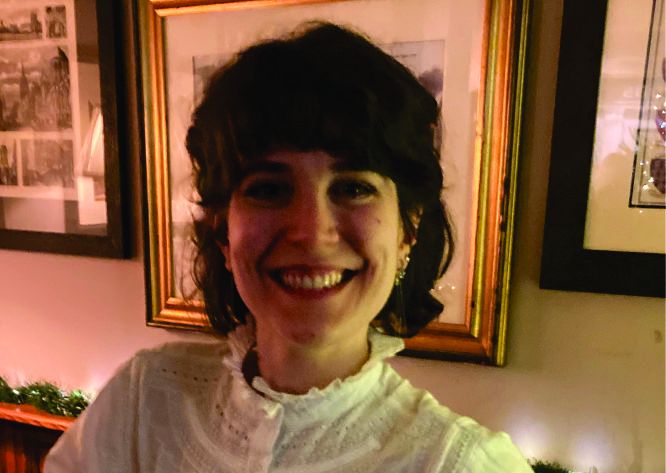
November 2022
Dr. Laura! Laura has defended her D. Phil. thesis about the extracellular host manipulation by late blight pathogen Phytophthora infestans. Congrats!!!

November 2022
Dr Felix! Felix has completed his D. Phil. with an outstanding thesis about the comparison between immuno-secretomes of various plant species and using Alphafold to predict novel interactions at the plant-pathogen interface.
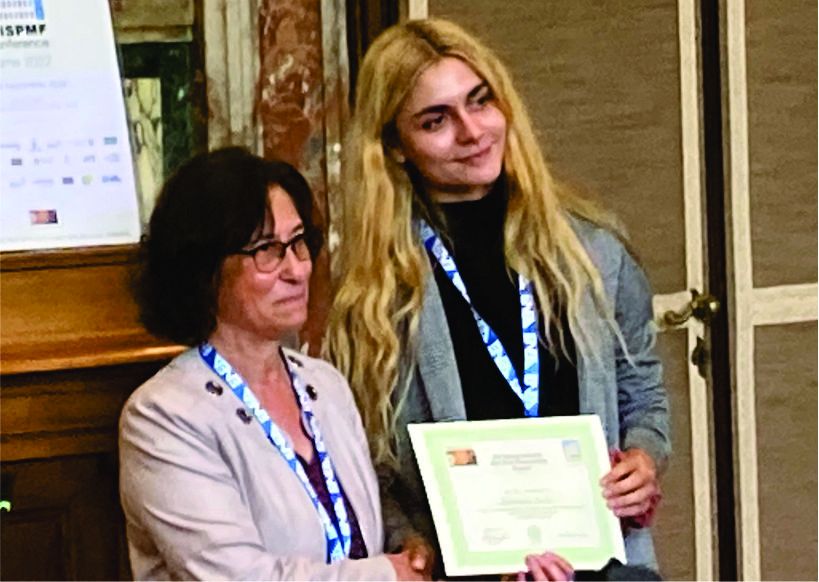
September 2022
Konstantina wins best presentation award at the Plant Molecular Farming (ISPMF2022) meeting in Rome!
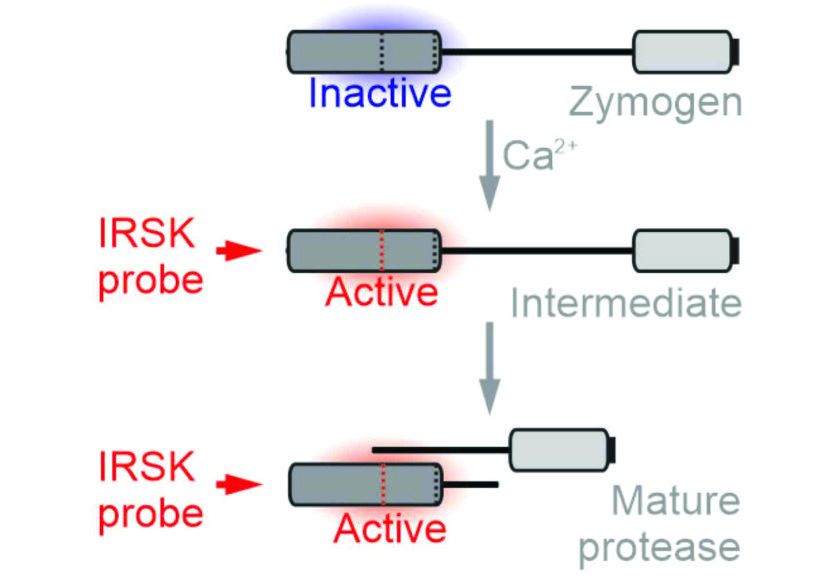
September 2022
Out in iScience: Activity-based probes trap early intermediates during metacaspase activation!
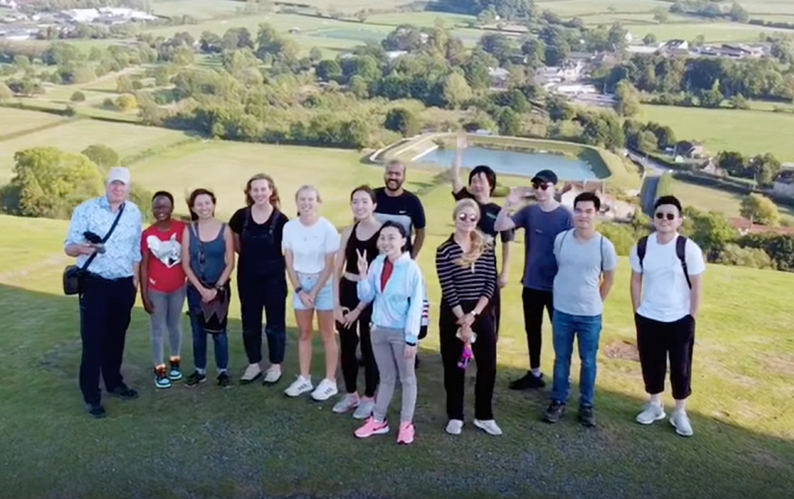
September 2022
Lab retreat near Glastonbury! Huge house for a big brainstorm, good food and fun games!
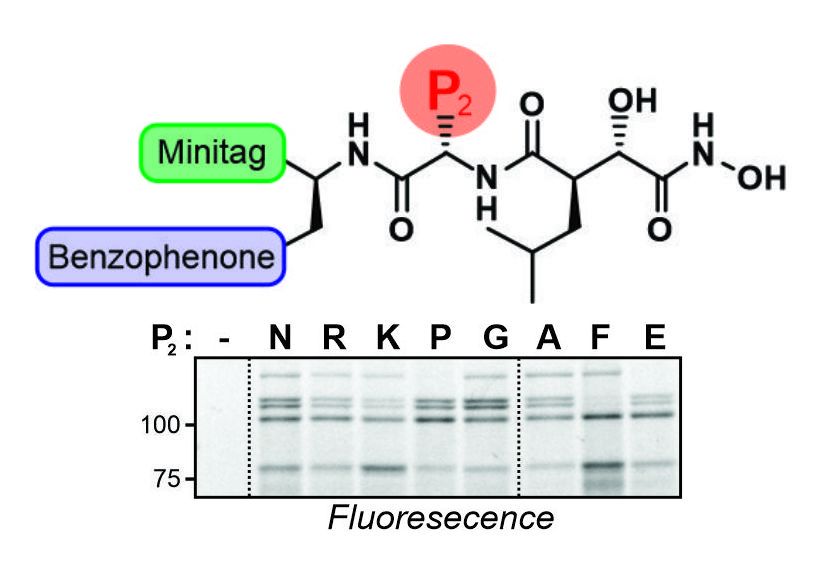
August 2022
Just out in New Phytoplogist: Broad-range metalloprotease profiling in plants uncovers immunity provided by defence-related metalloenzyme!

January 2022
Happy 2022! New year dinner at Somerville college. Looking back to a successful 2021 and forward to an exciting 2022. Cheers!
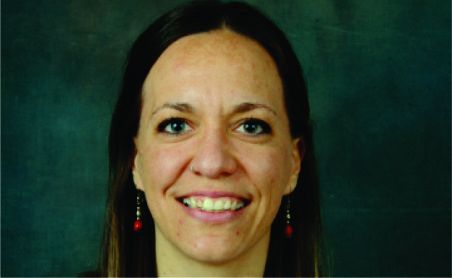
December 2021
Maria has submitted her D. Phil. thesis on activity-based labeling of cytochrome P450s and glutathione transferases and successfully defended her work at the D. Phil. viva. Congrants Maria!!!
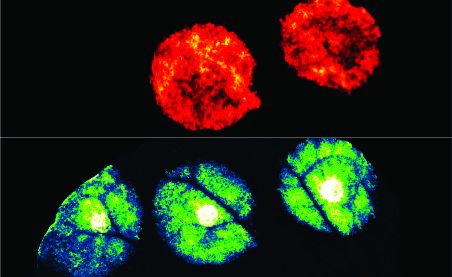
October 2021
AgroLux: a luminescent strain of Agrobacterium tumefaciens to monitor Molecular Pharming and Plant Immunity in agroinfiltrated leaves.
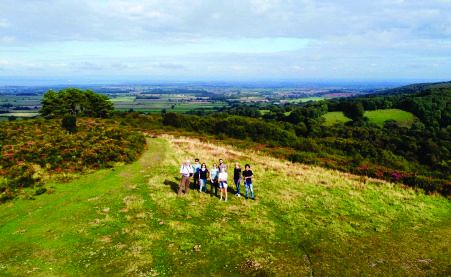
September 2021
A 4-day labretreat to Somerset. A lot of scientific creativity, good hikes and good gaming!
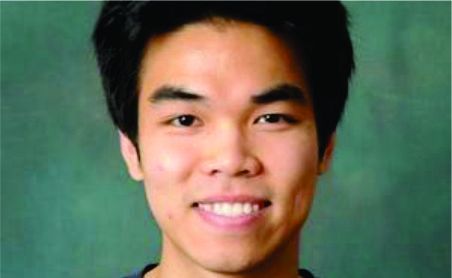
May 2021
Tee has submitted his D. Phil. thesis and successfully defended his work on the biosynthesis and identify of the BGAL1 inhibitor during the D. Phil. viva. Congrats, Tee!!!
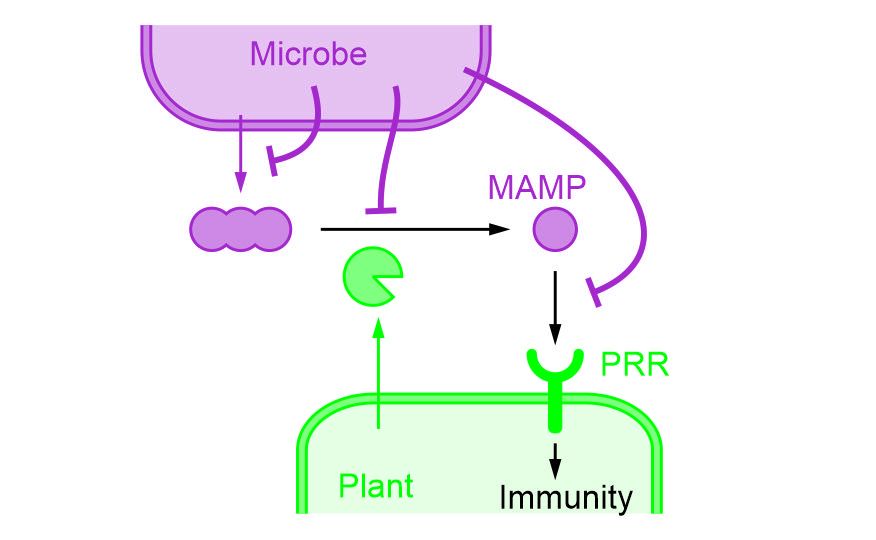
May 2021
Defeated by the nines: nine extracellular strategies to avoid MAMP recognition in plants. An impressive review on how plant pathogens avoid recognition in the plant apoplast, published in The Plant Cell. Read here more about the first author Pierre Buscaill.
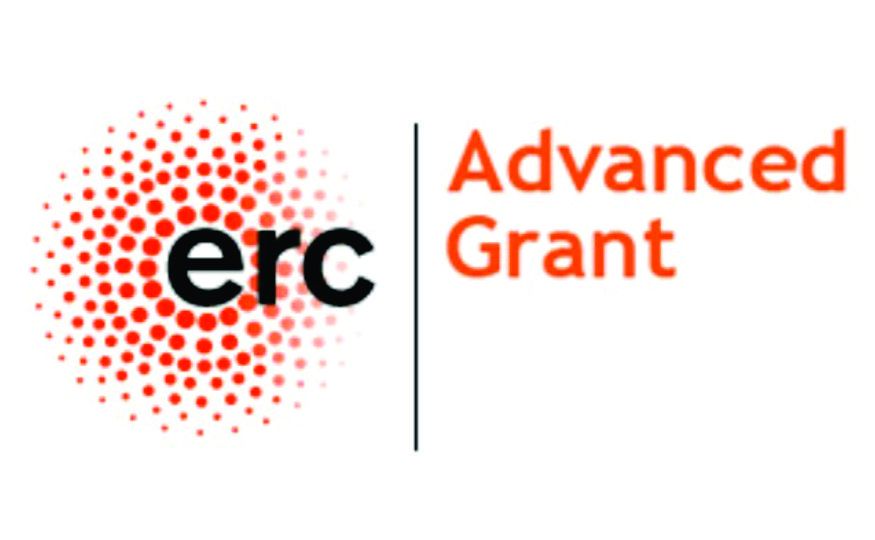
April 2021
ERC Advanced grant! We will soon be spending 2,5 million euro to explore the plant-pathogen interface with chemical proteomics! Postdoc positions will be advertised soon!
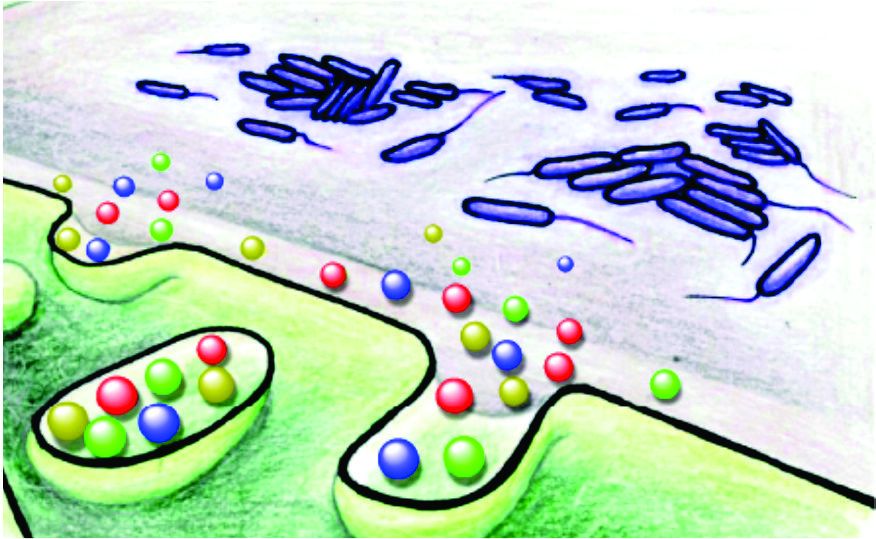
March 2021
Special Issue on Plant Proteases with an impressive review by Alice Godson with a meta-analysis of secreted immune proteases in plants!
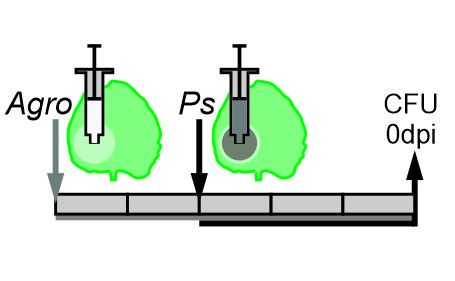
February 2021
Agromonas: a quick, versatile infection assay of Pseudomonas syringae on agroinfiltrated Nicotiana benthamiana leaves, facilitating studies of immunity conferred by both depletion and overexpression.

December 2020
Emma has submitted her D. Phil. thesis and successfully defended this during her viva. After the has made the minor corrections we can call her Dr. Emma! Congrats!!!
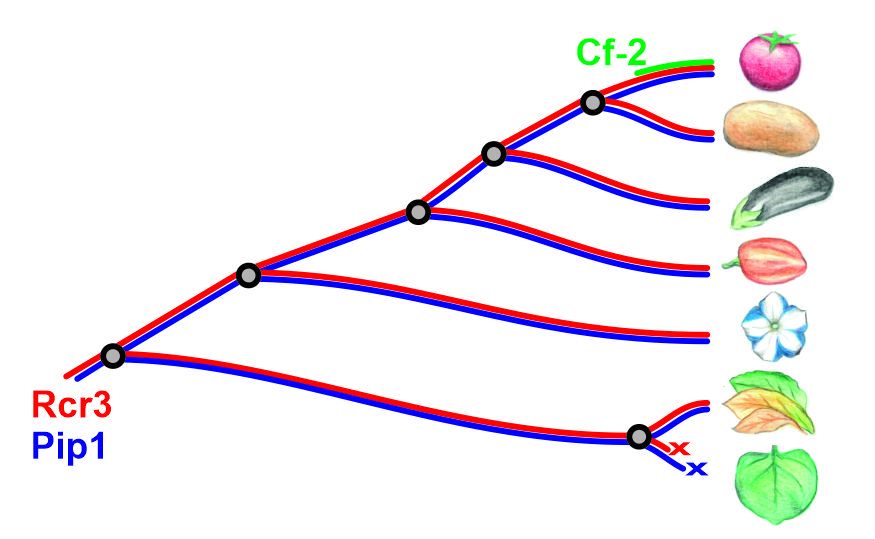
September 2020
Evolution of a guarded decoy published in Nature Communications. An impressive piece of research, spear-headed by Jiorgos Kourelis.

April 2020
A new BBSRC grant with Gail Preston to identify the BGAL1 inhibitor produced by Pseudomonas syringae! Exciting years ahead!
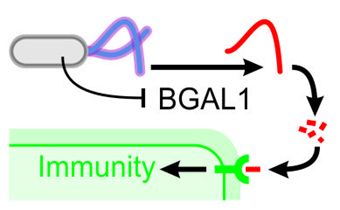
April 2019
Our Science manuscript is online! An exciting discovery on the extracellular arms-race at the plant-bacterium interface.
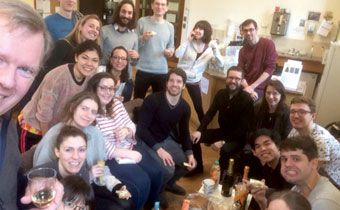
February 2019
We celebrate the acceptance of Pierre's manuscript! A great discovery made through a great collaboration involving many labmembers. Will be online soon.
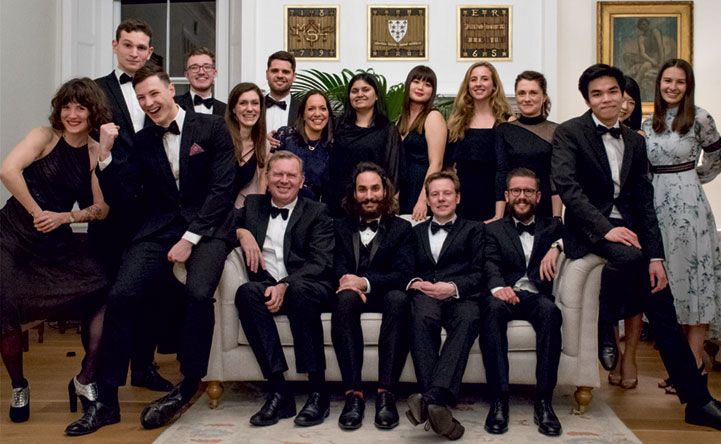
January 2019
Happy 2019! New year dinner at Somerville college. Looking back to a successful 2018 and forward to an exciting 2019. Cheers!

December 2019
Best poster prize for Shivani Malik! Truly exceptional, out of 1300 posters!
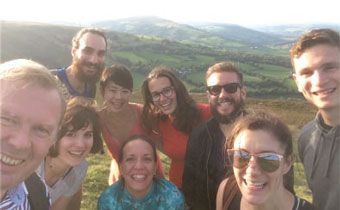
September 2018
Lab retreat in Wales! With fantastic weather for a long hike, fun games, and an excellent scientific brainstorm.
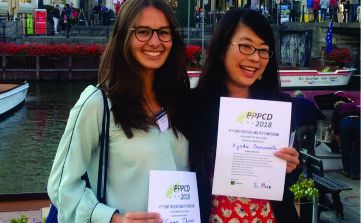
September 2018
TWO best poster awards for Emma and Kyoko at the 4th conference on Plant Proteases and PCD in Ghent! Well done both!!!
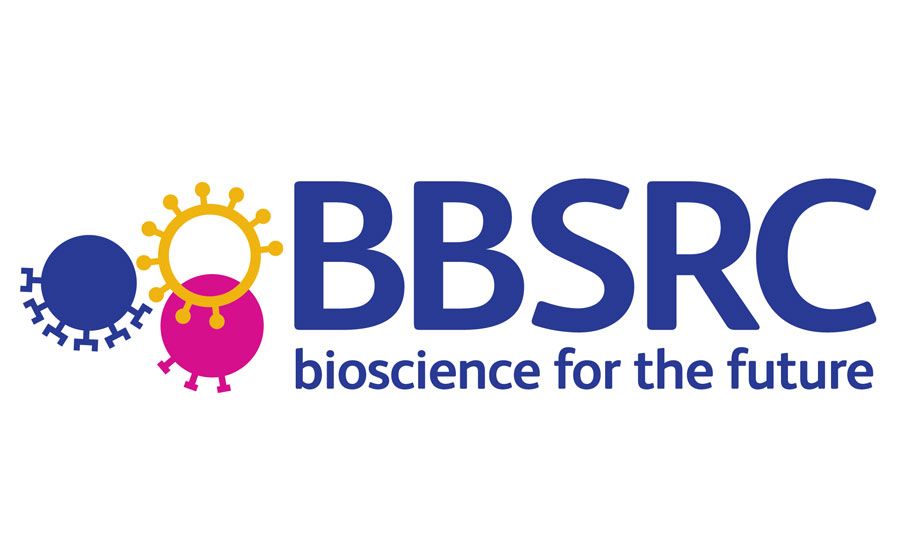
June 2018
A second BBSRC grant! This time on the role of substrates of immune protease Pip1 in the infections by Phytophthora infestans.

May 2018
New BBSRC grant to study the role of extracellular glycosidases in immunity!
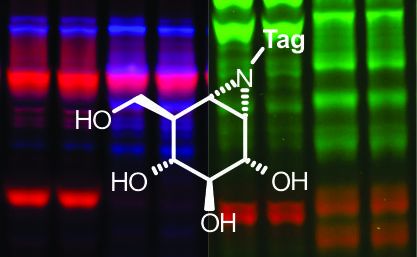
April 2018
New probes to monitor active alpha-glycosidases in plants, applied to study anthesis and infection of saffron crocus.
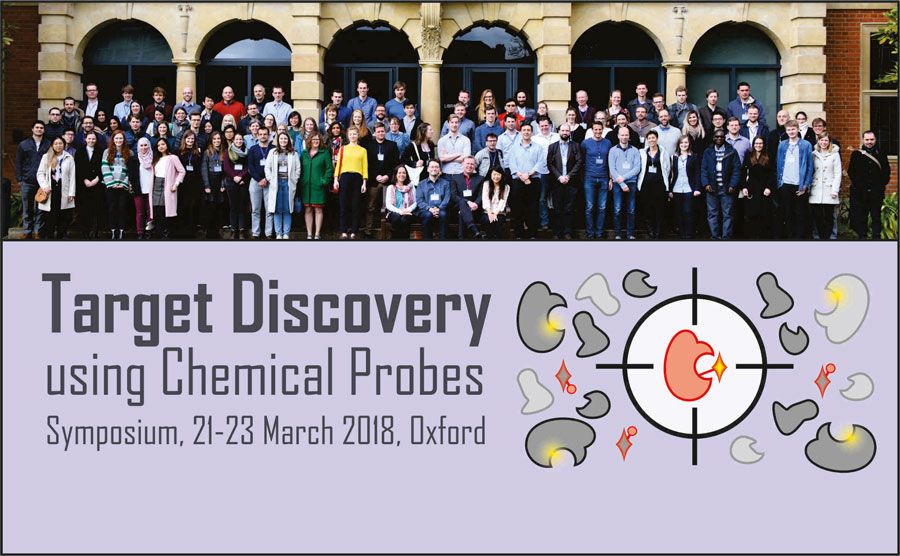
March 2018
We hosted the 11th International Conference on Activity-based Protein Profiling (ABPP2018) in Somerville College, Oxford: 104 participants, 30 presentations and 35 posters.
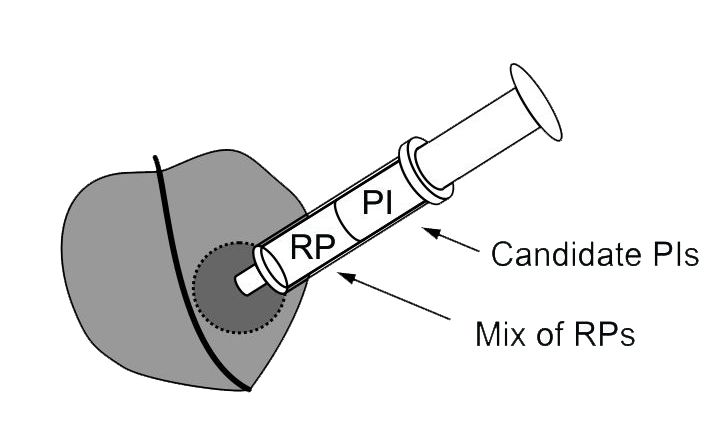
February 2018
Plant Biotechn. J.: Three new protease inhibitors that boost recombinant protein expression upon agroinfiltration.
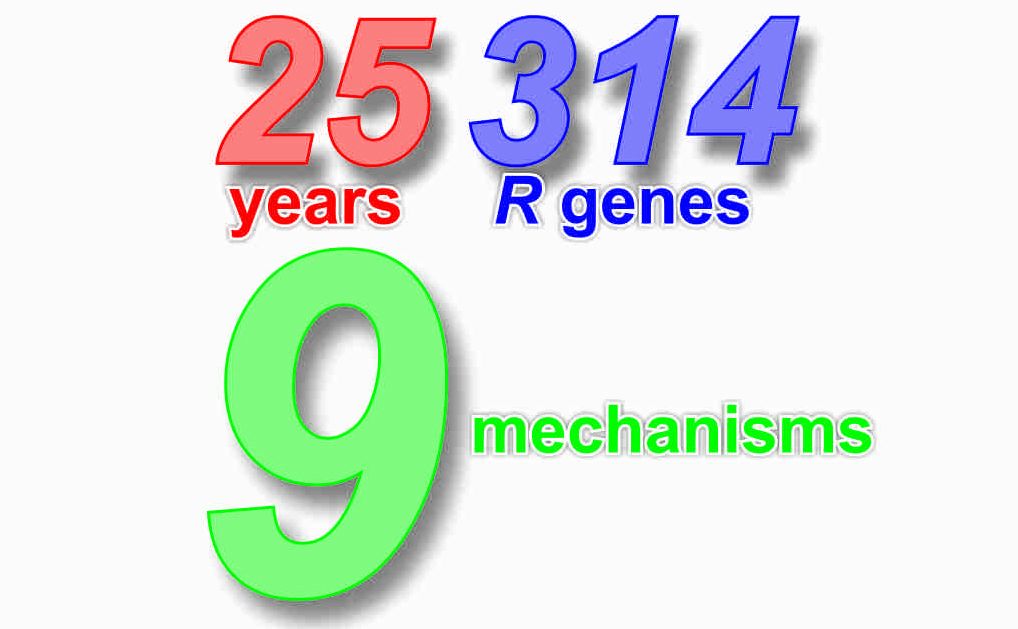
January 2018
The fruits of 25 years of R gene cloning: 314 R genes group into 9 common overarching mechanisms. Well done, Jiorgos!
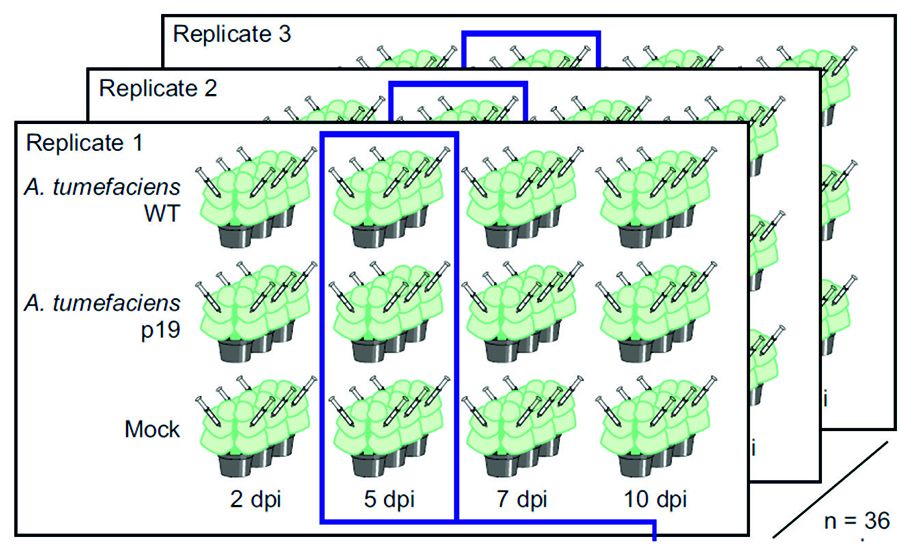
November 2017
Niben secrets unlocked: Friederike Grosse-Holz published her extensive datasets on the transcriptome, extracellular proteome and active secretome of agroinfiltrated Nicotiana benthamiana in Plant Biotechn. J.
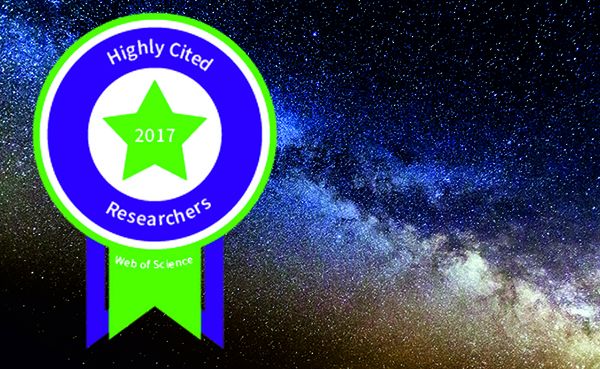
November 2017
Highly Cited Researcher 2017! Declared by Clarivate Analytics (web of science). There are only 15 UK researchers in the field of Plant & Animal Science awarded with this title.

Oktober 2017
Top personal records at Oxford half marathon! Maria (2:01:23), Judith (1:57:49), and Friederike (1:52:06). Well done, athletes!

September 2017
Best seminar award!
Jiorgos Kourelis gave the best PhD seminar the Oxford Congress of Plant Sciences!

September 2017
Full Professor in Plant Sciences!
Renier van der hoorn has been awarded the title of Full Professor in the most recent Recognition of Distinction Exercise at the University of Oxford.
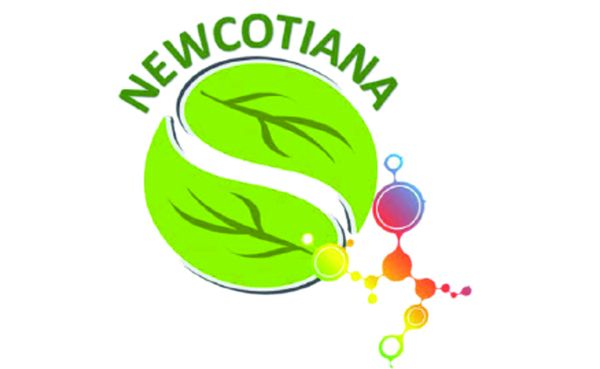
Januari 2017
New EU Grant: 'Newcotiana'
A new EU grant has been awarded to the Plant Chemetics lab as part of a larget Horizon 2020-funded collaborative grant coined 'Newcotiana' on improving Nicotiana species for Molecular Pharming.

Maart 2017
This video describes the activities in The Plant Chemetics Lab. A special thanks to Dr. Amjad Husaini for putting this together!!!

Maart 2017
Four new team members run the Teddy Hall Relais under the team name 'Running buffers'! Excellent time!

November 2016
Declared a Highly Cited Researcher, according to Thomson Reuters! In the UK, there are only 16 researchers in the field of Plant & Animal Science rewarded with this title.
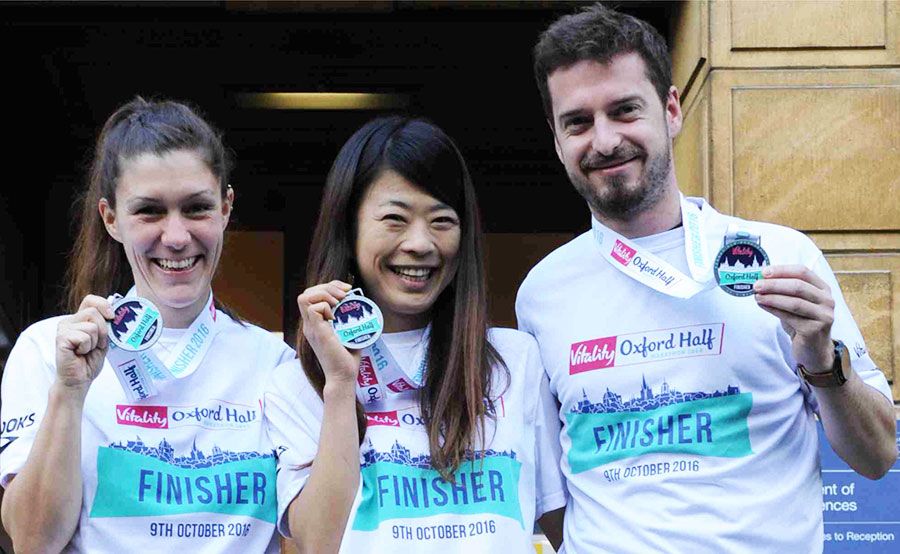
Oktober 2016
Three team members have run the Oxford half marathon and broke their personal records. Kyoko finished at at 1:50:43, Judith at 1:56:59 and Marcel at 2:03:29 (partly on one leg). Well done everyone!!!
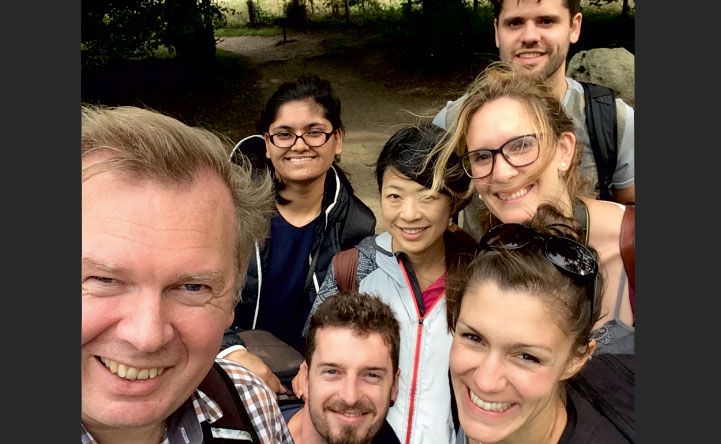
September 2016
'Springwalk' in the Valley of the White Horse. We had fantastic weather!!!
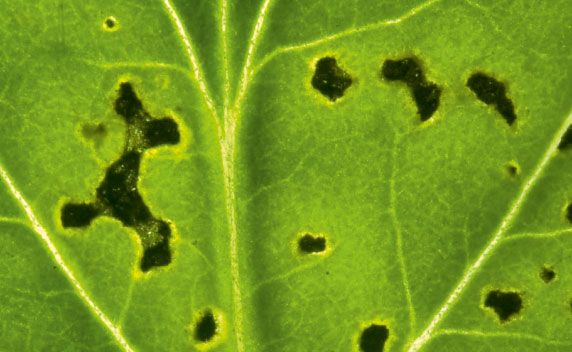
August 2016
PtoDC3000 produces Cys protease inhibitor Cip1!
Pseudomonas syringae pv. tomato DC3000 (PtoDC3000) produces an inhibitor targeting secreted Cys proteases of its host, tomato. We coined this chagasin-like inhibitor Cip1 and it evades recognition by the Rcr3/Cf-2 system, possibly by its low affinity for Rcr3. This is the fourth unrelated pathogen-derived inhibitor targeting the same secreted Cys proteases of the host. Previously identified inhibitors were from a tomato-pathogenic fungus (Avr2), oomycete (EpiCs) and nematode (Vap1).
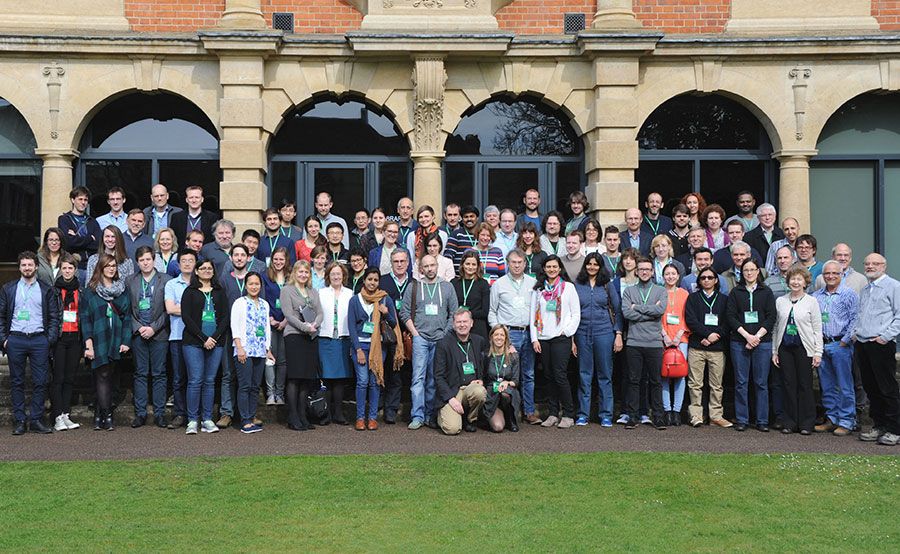
April 2016
We organized a exciting Conference on Plant Proteases in Somerville College, on 10-12 April 2016.
These 86 participants represent >40 research groups and work on diverse topics in plant biology but face common challenges on unravelling the action and substrates of plant proteases.

Maart 2016
John Fell Funding awarded to Plant Chemetics lab
The John Fell Fund has awarded 75k£ to establish quantitative hyper-reactive cysteine profiling in Oxford and apply this technology to investigate how the proteome of a bacterial plant pathogen responds to a host-generated oxidative burst.
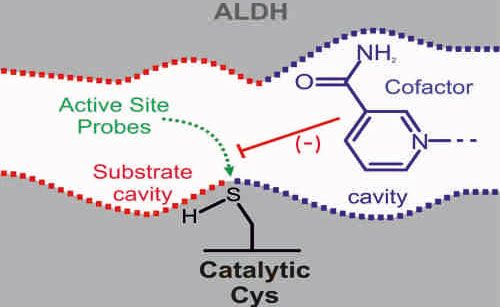
February 2016
In ACS Chemical Biology: cofactor suppresses active site labelling.
We uncovered a strong correlation between enzymatic activity and active site labelling for aldehyde dehydrogenases, with one remarkable exception: nicotinamide cofactors suppress active site labelling.
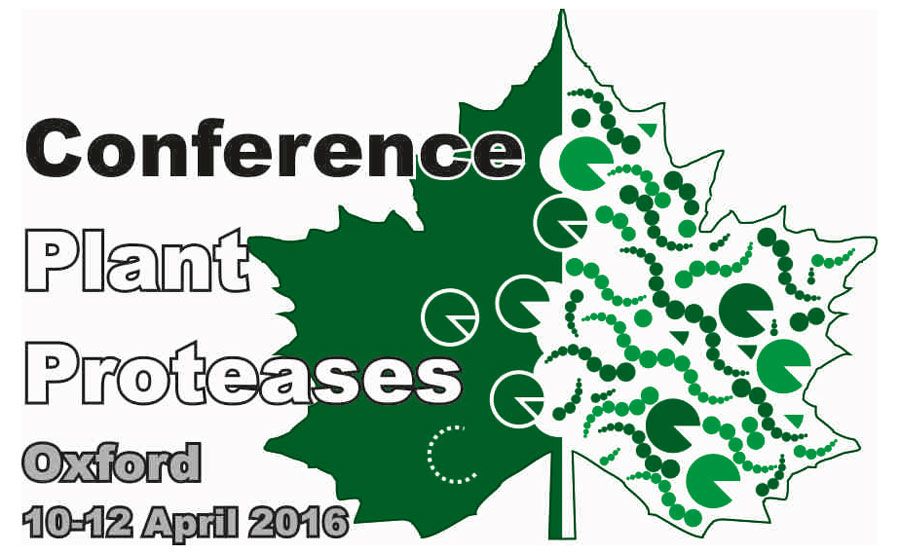
November 2015
Announcement of International Conference on Plant Proteases
This 3-day conference will be held in the centre of Oxford, April 10-12 2016. For speakers, venues, registration and other information, please visit www.plantproteases2016.com.
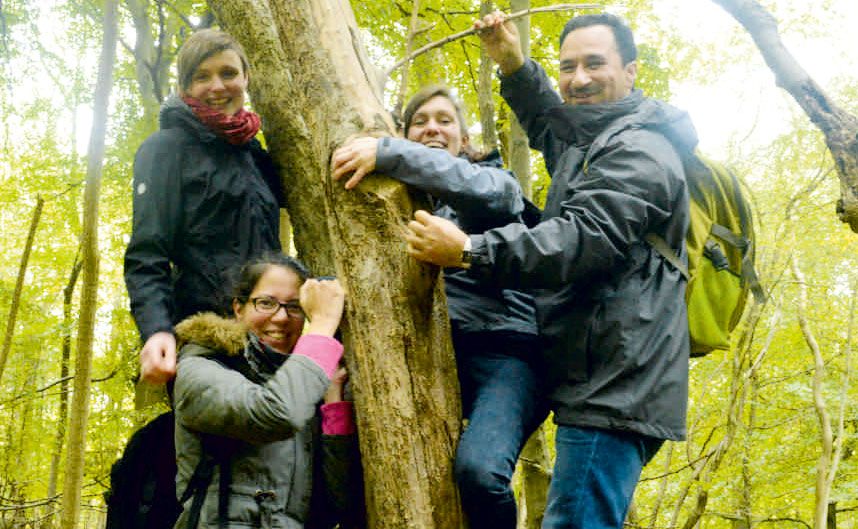
Oktober 2015
'Springwalk' in Chiltern.
A beautiful hike in the autumn forests of the Chilterns to Nettlebed and back, 35mins from Oxford. Some trees were irresistible...
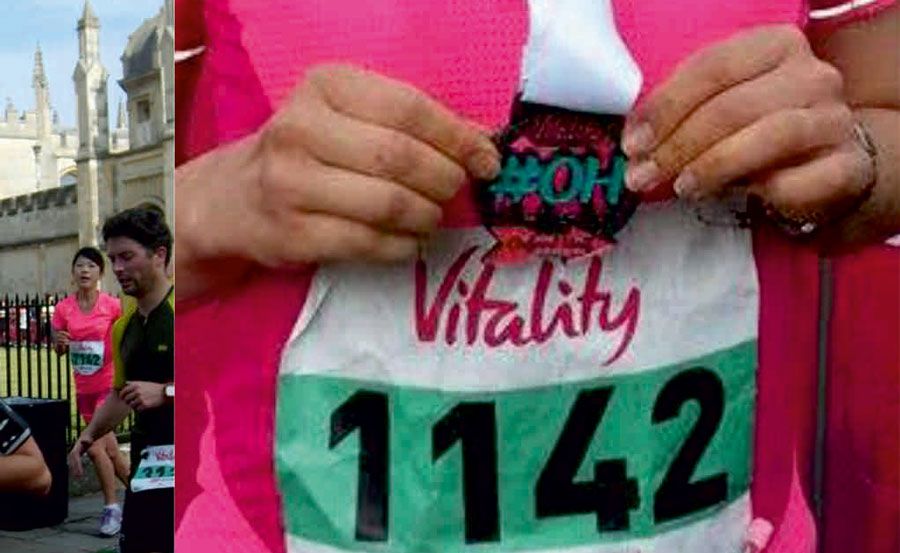
Oktober 2015
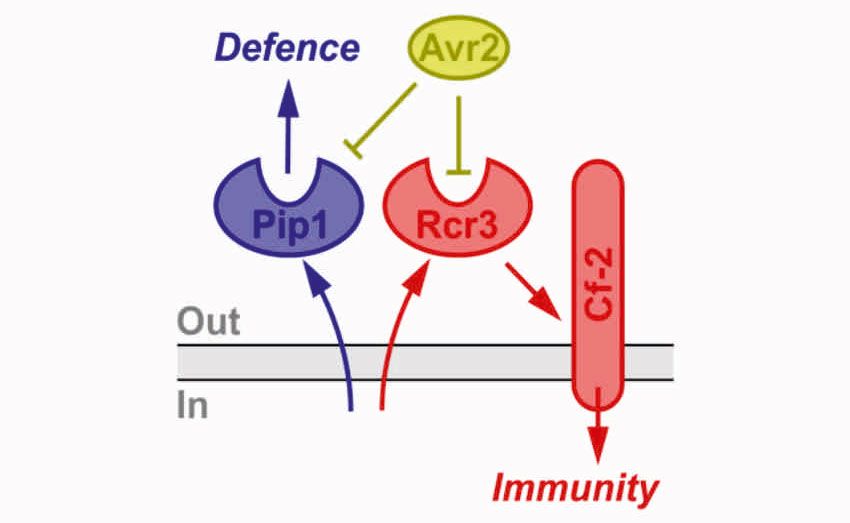
August 2015
In Current Biology: Functional divergence of two secreted immune proteases of tomato. We show that Rcr3 and Pip1 are paralogous proteases that differ in their expression levels and exposed surface and diverged >36 mya. Pip1 is an important immune protease acting against unrelated apoplastic pathogens, while Rcr3 is a co-receptor for pathogen-derived inhibitors, playing a minor role in the absence of immune receptor Cf-2.
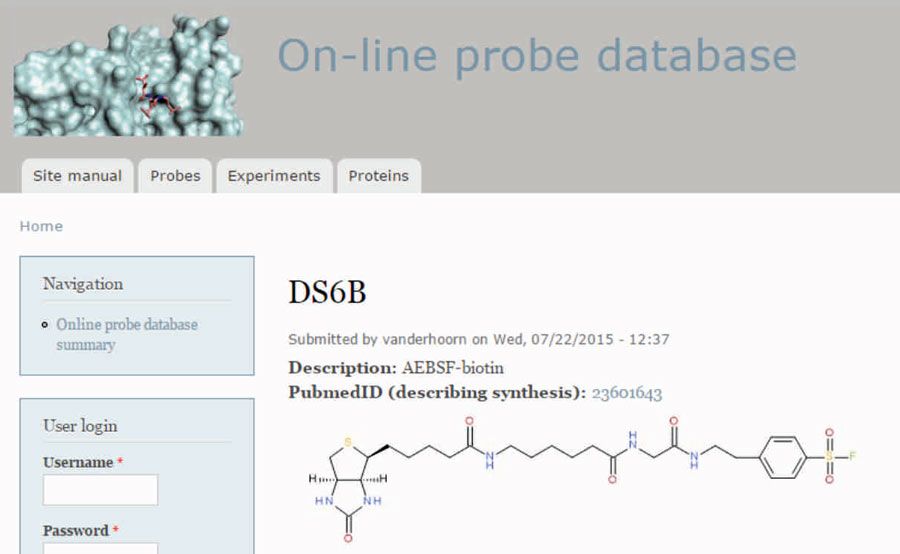
July 2015
NEW: On-line probe target library. We have assembled all our published probes, experiments and probe targets in a searchable database. Click here to search for labeling conditions, probes or targets.
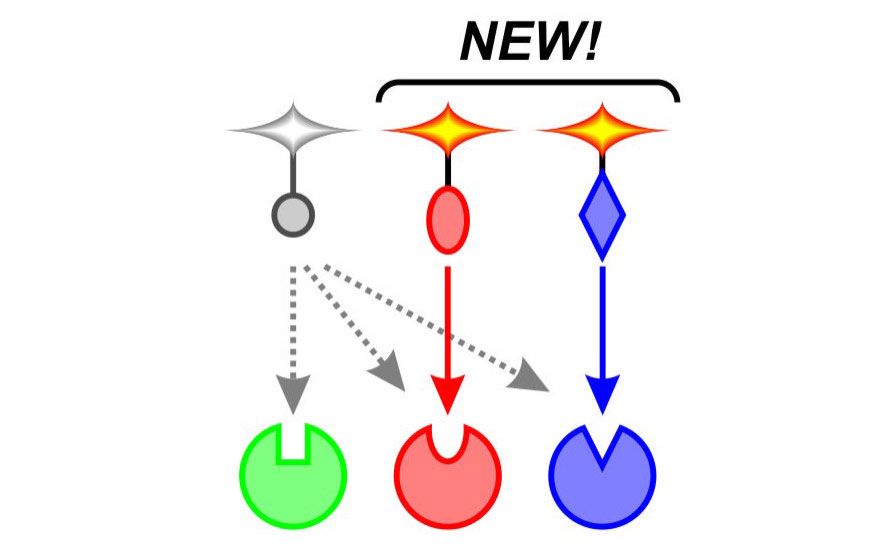
Juni 2015
In Plant Physiology: NEW probes for Cys protease subfamilies!
We introduce new fluorescent probes for three subfamilies of Cys proteases: aleurains (ALPs), cathepsin B's (CTBs) and vacuolar processing enzymes (VPEs). These probes are widely applicable and display unexpected dynamics of Cys proteases during seed germination. See Lu et al., Plant Physiol. in press.
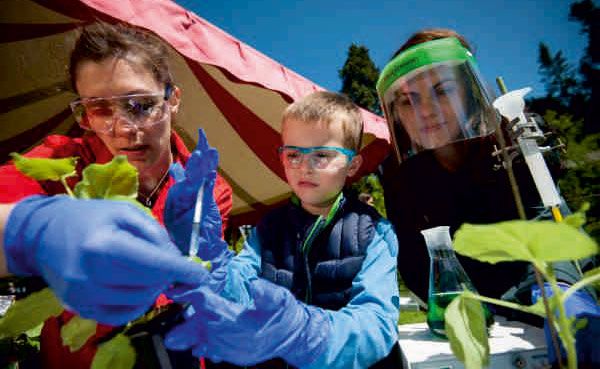
May 2015
Fascination of Plants Day
Judith, Luisa and Bala entertained the public (and themselves) by infiltrating plants during the Fascination of Plants Day (May 18) at the Harcourt Arboretum.
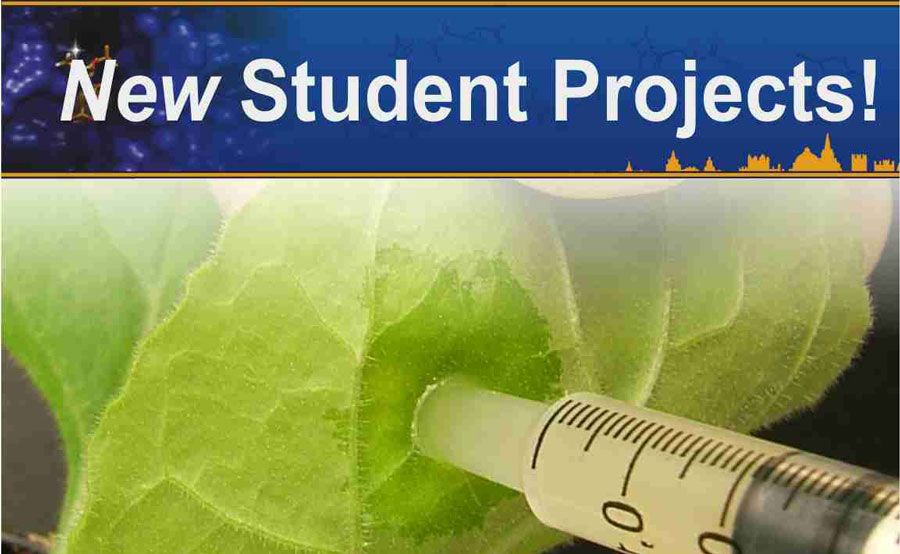
April 2015
Exciting new projects for university students!
For biology/chemistry students for periods of 3-9 months on a diverse range of topics and using a broad variety of techniques. Please see the flyer for more information and contact Renier van der Hoorn for more information.
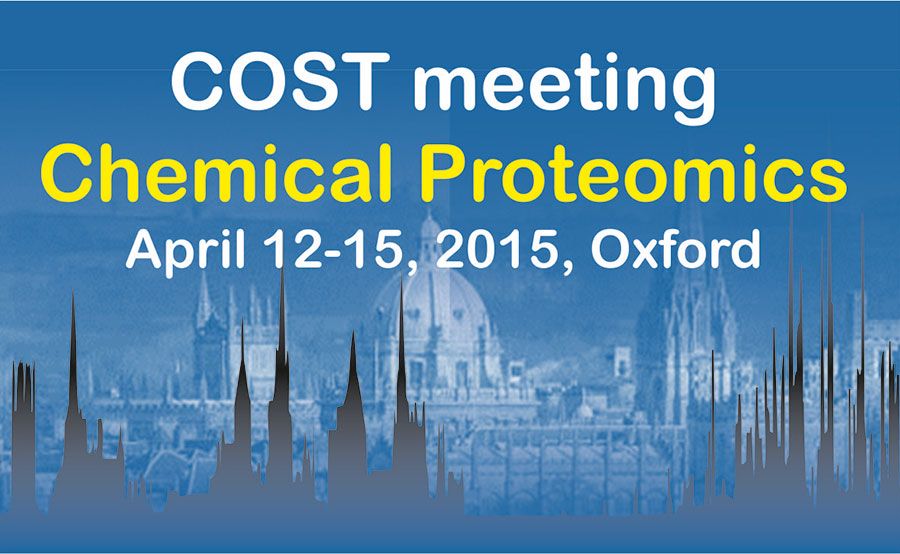
Maart 2015
COST Meeting Chemical Proteomics
12-14 April 2015, Oxford
We are organizing the COST Meeting on Chemical Proteomics under the title: 'Mining the Chemical Proteome: Target discovery using chemical probes and their application in medicine and biology'. We have scheduled 25 speakers, 35 poster presentations and have over 100 participants. For more information, please download the flyer or program.
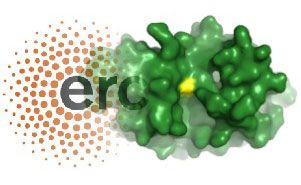
Oktober 2014
GreenProtease project has started!
This ERC-funded project has started with the arrival of Dr. Luisa Madeira in October. Friederike Grosse-Holz and Dr. Daniela Sueldo will join the GreenProtease team in November and January, respectively. Together they will unravel the proteolytic machinery of Nicotiana benthamiana by protease depletion to improve recombinant (glyco)protein production and elucidate the roles and substrates of the plant proteases. Welcome and success!
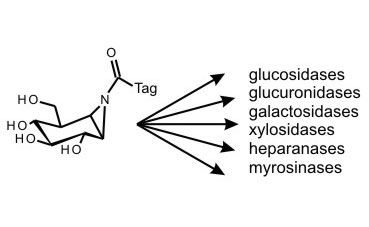
August 2014
In MCP: Broad-range glycosidase profiling
Activity-based probes for glucosidases also label the active sites of dozens of other glycosidases! We show that these probes are broadly applicable on various plants, sub-proteomes and living cells.
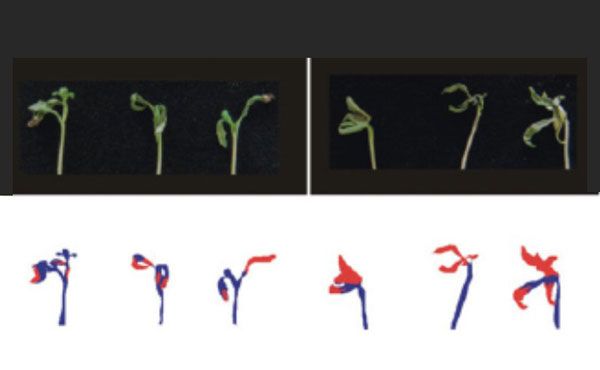
Juni 2014
In New Phytologist: Hydrolases precede hypersensitive tissue collapse.
Activity-based protein profiling was used to describe the active hydrolase content of tomato seedlings undergoing hypersensitive cell death. Differential hydrolase activities precede tissue collapse and are also found in plants infected with the fungal pathogen Cladosporium fulvum.

January 2014
In Science: Potato blight lineage adapted to new host proteases.
A collaboration with the laboratory of Sophien Kamoun (Sainsbury lab, Norwich, UK) resulted in the discovery of the molecular details of host adaptation of a Phytophthora infestans lineage that jumped onto a different host species about 1300 years ago. The protease content of this new host species is different, which forced the pathogen to adapt its protease inhibitors. A single amino acid residue exchange underpins host adaptation and is associated with a reduced ability to manipulate the proteases from the former host. Published in Science. Comments published in Science, The Scientist, and Oxford Media.
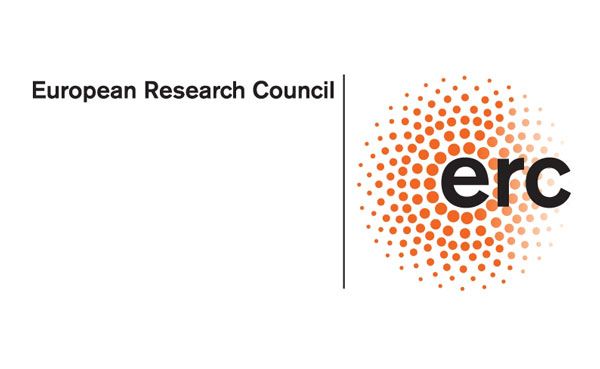
December 2013
An ERC-CoG-2013 consolidator grant has been awarded to Dr. Renier van der Hoorn for his 'GreenProteases' proposal with the full title: 'The proteolytic machinery of the plant apoplast: from basic understanding to improved recombinant protein production. The EU wil sponsor this project with 2.038.196 euro for a period of 5 years.
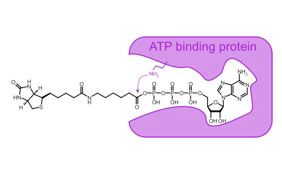
September 2013
In MCP: Monitoring the ATP binding proteome
Many protein activities are driven by ATP hydrolysis. We monitored ATP binding activities of the Arabidopsis proteome using Acyl-ATP probes that label conserved lysine residues in ATP binding pockets. We discovered that these probes label a diversity of protein kinases, including receptor-like kinases, MAP kinases, calcium-dependent kinases and PTI-like kinases.
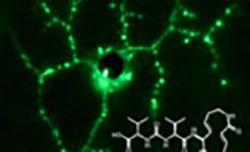
March 2013
In PLoS Pathogens: Pathogen enters wounds by inhibiting host proteasome
Pseudomonas syringae pv. syringae is an epiphyte that occasionally causes disease upon wounding by hail, frost, strong winds and sand storms. We discovered that these bacteria enter wound sites and colonize adjacent tissues by producing proteasome inhibitor Syringolin A (SylA). SylA diffuses from the primary infections site and blocks salicylic acid (SA) signalling in adjacent tissues, creating an SA-insensitive zone that is ready for colonization.
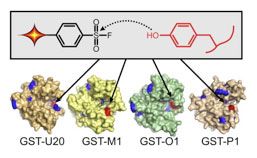
April 2013
In Chem & Biol: Probing functional tyrosines
We discovered that besides serine proteases, probes based on serine protease inhibitor AEBSF also label many other proteins, often at tyrosine residues residing in active sites, indicating that these ‘reactivity probes’ highlight functional tyrosines in proteomes. Indeed, labeling of glutathione S-transferases (GSTs) occurs on a single tyrosine that is not conserved in the substrate binding site but nevertheless essential for GST function.
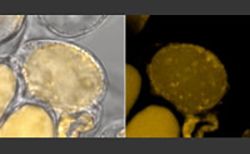
February 2013
In Plant J: A new tool for studying vacuolar processing enzymes
Vacuolar processing enzymes (VPEs) are legumain-like cysteine proteases involved in programmed cell death and protein processing. We introduce a specific, activity-bases probe to detect VPE activities in living tissues of different plants and discovered that VPE activity is upregulated upon infection with an oomycete pathogen. Interestingly, oomycete infection benefits from VPEs, probably by supporting their biotrophic lifestyle.
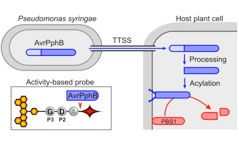
February 2013
In Chem & Biol: Tracing bacterial effector in action
Plant pathogenic bacteria manipulate their host by injecting effector proteins. One of these effectors is AvrPphB, a cysteine protease that cleaves host kinases involved in immunity. Inspired by the unique substrate cleavage specificity of AvrPphB, we designed an activity-based probe that targets this protease. We used this probe to demonstrate that the prodomain of AvrPphB is required for secretion and its removal required of activity in the host cell.
